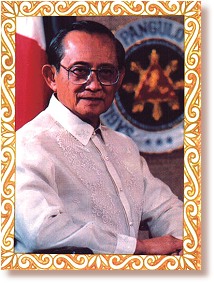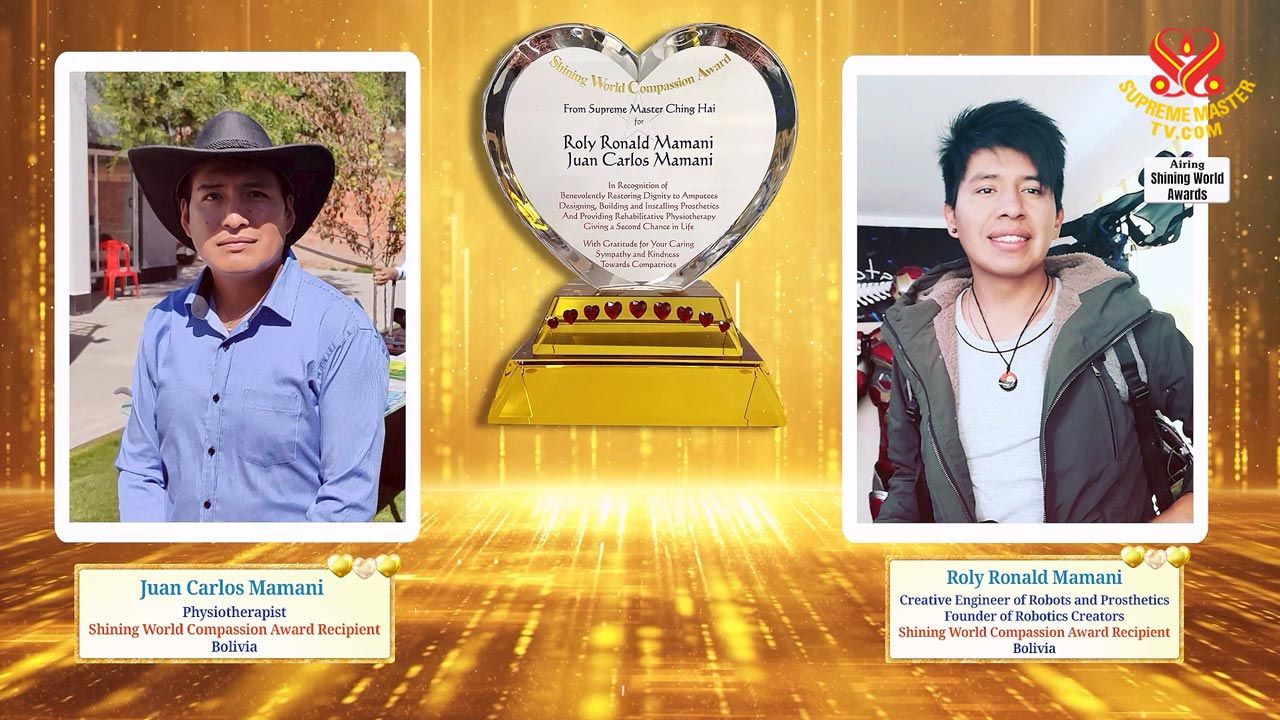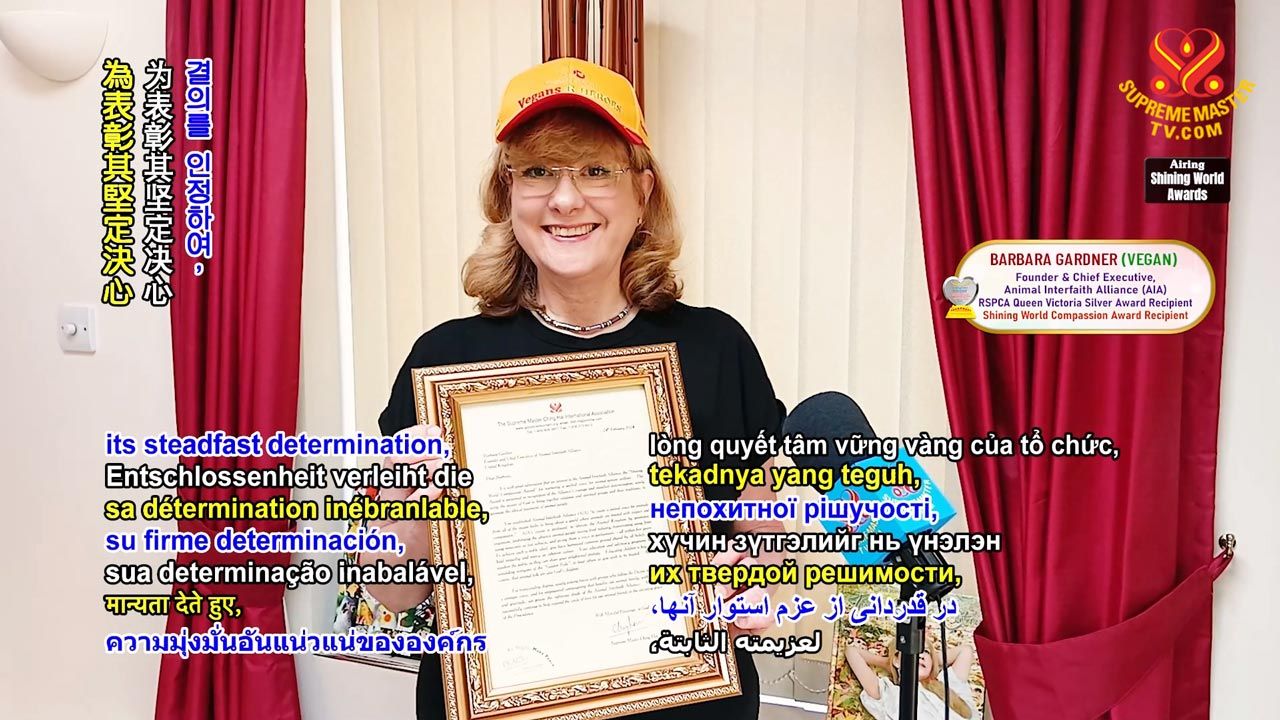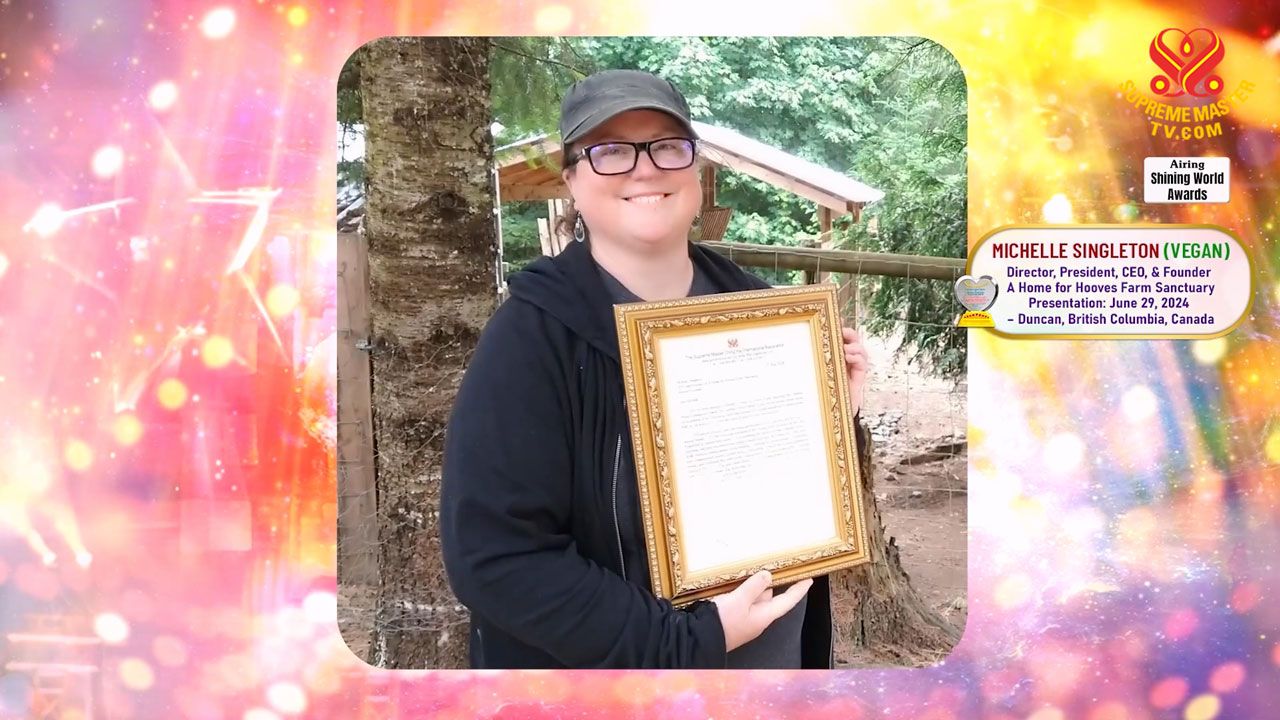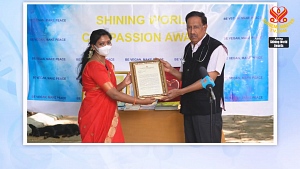By Mr. Joe Lad
Santos (Originally in English) 200612.15
When in 1995 the United Nations High Commissioner for Refugees (UNHCR) decided
to stop the funding for refugee camps throughout Asia, some countries began
"forced repatriation" to send the refugees back home, sometimes by violent
means. Many refugees protested this kind of treatment. Some even committed
suicide.
On June 9 1995, near the 97th Independence Day of the
Philippines (June 12), President Fidel Ramos issued an order granting permanent
residence to 5,000 Aulacese who entered the country before 1979. Upon hearing
this news, The Supreme Master Ching Hai who had been working tirelessly to help
find a home for the boat people, sent a letter to President Ramos and the
Philippine Government congratulating them on their Independence Day and for
their multitude of achievements. Above all, The Supreme Master thanked them on
behalf of the 5,000 Aulac refugees.

|
| His Excellency Fidel V. Ramos, Former President of the
Philippines was awarded the "Shining World Leadership Award" |
|
When the UNHCR stopped funding the
camps, the Philippine government considered sending the remaining Aulac refugees
home. The refugees themselves refused repatriation and went on a hunger strike.
About 700 Aulacese escaped the Palawan refugee camp for fear they would be
shipped back home. Many of them were minors without families since they would be
the first to be sent back.
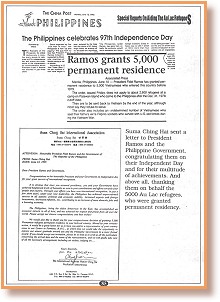
|
| The news clipping about President Fidel Ramos' granting
permanent residence to 5,000 Aulacese and the letter of appreciation from
Supreme Master Ching Hai to President Ramos and the Philippine Government. |
|

